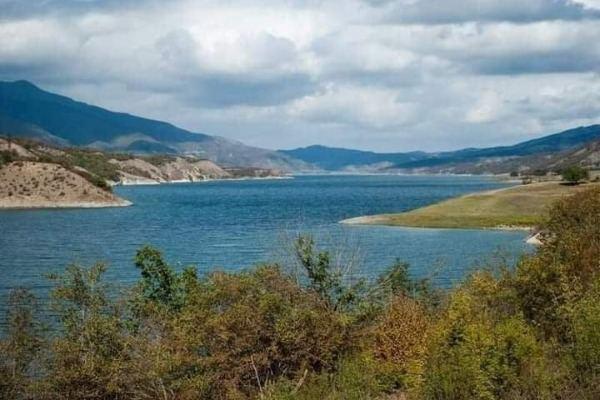Armenia carries out eco-terrorism against Azerbaijan

By Trend
The manner of terrorism includes itself eco-terrorism as well, but nobody could argue which kind of terrorism is worse than another, Trend reports citing Commentary by the Center for Economic Reform Analysis and Communication.
Originally, eco-terrorism often described as environmental warfare consisting of the deliberate and illegal destruction, exploitation, or modification of the environment as a strategy of war or in times of armed conflict. Currently, eco-terrorism is what we can call actions of Armenia in legal Azerbaijani territories during the last 30 years.
Firstly, we should note the fact that for the last 30 years Nagorno-Karabakh and surrounded 7 regions of Azerbaijan were under illegal occupation of Armenia, while all those territories are officially recognized as part of Azerbaijan. As a result of the occupation, nearly 30 thousand people lost their lives and more than 1 million Azerbaijanis had to leave their homes. Ever since Armenia has never stopped its anti-environmental behavior, thereby, overall nature and biological diversity of those territories are seriously damaged. Environmental collapse is worsening each and every day.
Armenia's eco-terrorism also negatively affected Azerbaijan’s water management and planning system. More precisely, some transboundary potable water resources and irrigation systems are under the direct invasion of Armenia and they are usually used as a “weapon” against Azerbaijani people.
Water stress is a hot topic in the modern world and Azerbaijan, where 72,7% of all surface water resources are generated outside of the country. Armenia continuously contaminates transboundary water resources with chemical and biological items. Research shows that each year nearly 350 million cubic meters of water passing through Armenia is polluted with chemical substances. Furthermore, microflora and microfauna of the 43 km part of the Araz river in the territories of Azerbaijan were completely destroyed and the amount of heavy metals in the Araz river is much higher than normal.
Furthermore, Azerbaijan’s highest reservoir according to its dam’s height (125 m) with a total water capacity of 560 million cubic meters, Sarsang water storage located in the Agdara region (Nagorno-Karabakh) is also under invasion. In the past, the Sarsang reservoir provided 6 regions of the Republic (Tartar, Agdara, Barda, Goranboy, Yevlakh, and Agjabadi) with water for irrigation. After the ceasefire starting from 1994, the Armenian side blocked these reservoirs and used to open the canal during spring and autumn in order to cause damage to Azerbaijani lands by creating artificial floods. Moreover, the water reservoir is more likely to fall down in case of any technical or deliberate provocation. Day after day Sarsang reservoir become the biggest threat to regional ecological and national security. As a result of this eco-terrorism, the ecological and humanitarian crisis could happen leading to the disappearance of biological diversity and flooding of 5 regions (where 400 thousand people live) of Azerbaijan.
Getting a bird's-eye view of all the issues, it becomes unsurprising that, Azerbaijan signed the “Convention on the Protection and Use of Trans-boundary Watercourses and International Lake” of the UN in March 1992, but Armenia did not. While eco-terrorism acts of Armenia were discussed with international organizations several times, lots of articles were written and researches were conducted in this regard. Consequently, Parliamentary Assembly of the Council of Europe adopted Resolution # 2085 dated 26 January 2016 on “Inhabitants of frontier regions of Azerbaijan are deliberately deprived of water” which states:
“… The Assembly considered that the deliberate creation of an artificial environmental crisis must be regarded as “environmental aggression” and seen as a hostile act by one State towards another aimed at creating environmental disaster areas and making normal life impossible for the population concerned”;
The resolution also states that the occupation of Nagorno-Karabakh by Armenia and other adjacent areas of Azerbaijan created similar humanitarian and environmental problems for the citizens of Azerbaijan living in the Lower Karabakh valley and lack of regular maintenance work for over twenty years on the Sarsang reservoir, located in one of the areas of Azerbaijan occupied by Armenia, poses a danger to the whole border region. The Assembly emphasizes that the state of disrepair of the Sarsang dam could result in a major disaster with great loss of human life and possibly a fresh humanitarian crisis.
Taking into consideration all of those facts, the Assembly requested immediate withdrawal of Armenian armed forces from the region concerned, thus allowing access by independent engineers and hydrologists to carry out a detailed on-the-spot survey, global management, throughout the catchment area, the use and upkeep of the Sarsang water resources, international supervision of the irrigation canals, the state of the Sarsang and Madagis dams, the schedule of water releases during the autumn and winter, and aquifer overexploitation. They also called Armenian authorities to cease using water resources as tools of political influence or an instrument of pressure benefiting only one of the parties to the conflict.
Despite the Resolution Armenia did not back down from its odious and inadequate actions and consistently demonstrated unconstructive behavior to the principles of international law.
The liberation of Sugovusan (formerly called Madagis) from Armenian occupation, on the 3rd of October 2020, enables to restore of the regional eco-balance.
The Assistant to the President of the Republic of Azerbaijan Foreign Policy Issues Department of the Administration Mr.Hikmat Hajiyev stated that:
“30 years long environmental terror came to an end with the de-occupation of Sugovusan village of Azerbaijan. Tartar river runs with plentiful water. On purpose, Armenia always stopped the flow of water. Eco balance will be provided in Tartar, Goranboy, and Yevlakh regions of Azerbaijan.”
--
Follow us on Twitter @AzerNewsAz
Here we are to serve you with news right now. It does not cost much, but worth your attention.
Choose to support open, independent, quality journalism and subscribe on a monthly basis.
By subscribing to our online newspaper, you can have full digital access to all news, analysis, and much more.
You can also follow AzerNEWS on Twitter @AzerNewsAz or Facebook @AzerNewsNewspaper
Thank you!
